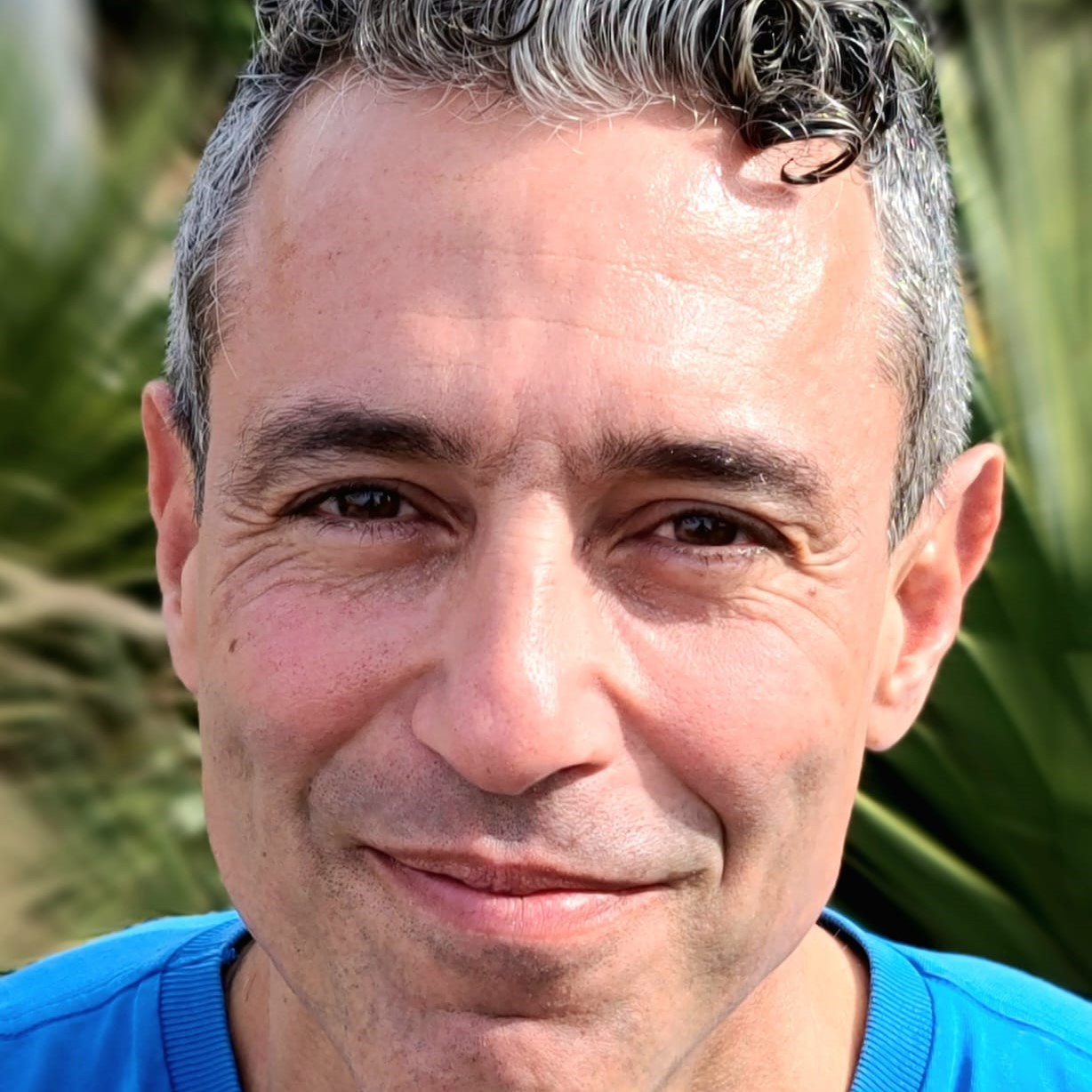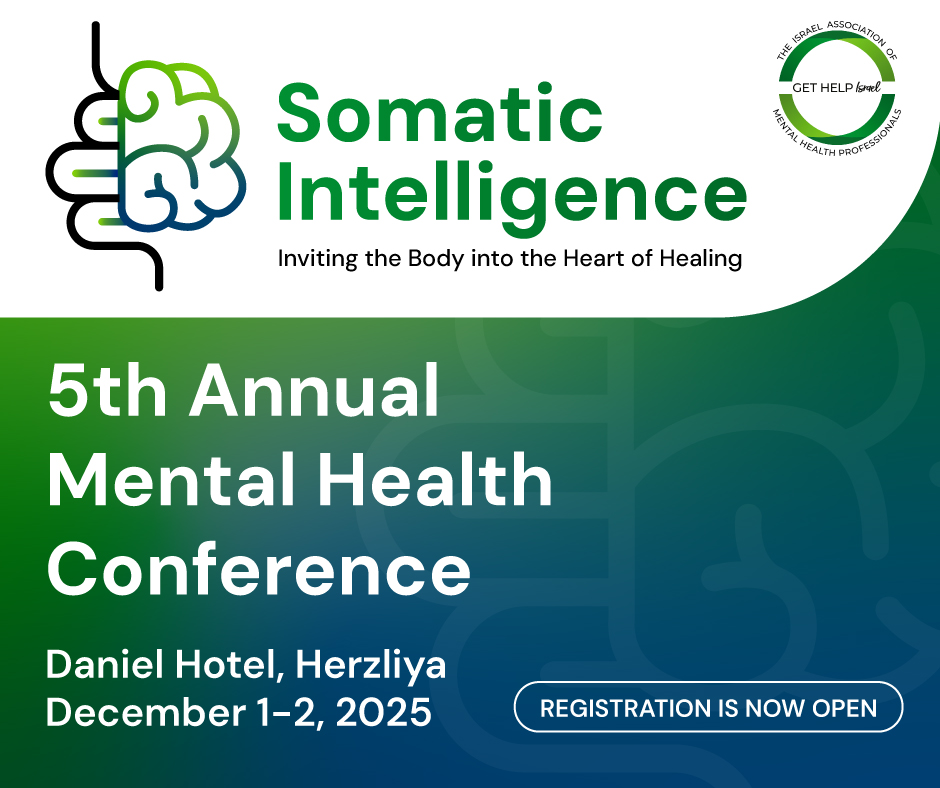Grief, Doom and Resilience in the Wake of a Life-Shattering Event
.png)
Exactly two years to the day have passed since one of the most traumatic events ever to happen to a people. Of course, a people is comprised of many parts, and as one of those parts, I wanted to reflect on the sense of prolonged grief I experience as a Jewish, Israeli person who also happens to be a therapist. The sense of assumed knowledge and capability as a ‘professional’ accompanies me in and out of my clinic, into my personal life, and of course, at times when I am alone, with no one but myself to reflect on this with.
As someone who is relatively “uninvolved” in the catastrophe (by uninvolved I mean someone who has not suffered the direct, first-hand pain of physical harm, loss or bereavement), I wanted to think about this grief, on ways to live with it, and also perhaps to draw on ways of looking at this grief as a vehicle for growth and healing.
In Mourning and Melancholia, a paper also written in a time of terrible pain and uncertainty, Freud (1917) tries to distinguish between a “healthy” and a “pathological” psychological reaction to loss. As I try and approach the sense of my own loss, the loss of someone who is relatively unhurt by the catastrophe of the past two years, it’s almost impossible to process it without being overwhelmed by the multi-layered nature of it. Very much in line with Bowlby’s (1961) words - “….mourning.. is the price we pay for love..”, I am faced with a staggering list of so much that had been loved and lost, that it is next to impossible to arrange my thoughts and feelings, and even think of where and what to start to let go of and to separate from in my mind.
The mourning I feel I experience, as a person who spent their lives overseas for twenty one years until the 7 October massacre, encompasses not just the sense of loss of physical and psychological safety, but of the entirety of my identity; it’s the loss of friends I thought I had, of acquired family that remained silent, of colleagues whom I thought would show me compassion, of the entire essence of myself in the world. To me, it feels like a cataclysmic loss of my entire identity as a human being up until the day when everything changed. If that isn’t enough, there is also the undeniable and unbearable fact that this event is not resolved nor finished. The potential for more loss to come is constantly there, on a minute to minute basis. What more can be lost and taken away?
Unsurprisingly, the foremost emotion present for me at the time of writing this, is anger. Anger at the sheer fact of the loss, but also anger at the betrayal, at the experience of the loss and how it makes me feel, at the uncertainty and the terror it brings with it. Anger at the loss of the fantasy of safety, forcing me to painfully acknowledge that I have no control over most, if not all - crucial aspects of my life and survival. Ellen Langer (1975) explored this challenge to our nervous systems very well, in my opinion, when highlighting how grief assaults our sense of control and security, and how this experience hinders attempts of regulation.
Faced with the magnitude of trying to reckon with the destabilising effects of loss, my internal economy of catastrophe is going into overdrive, making it next to impossible to resist the temptation to further catastrophise; to think of all the ‘what ifs’ that I store in some terrible psychic cupboard of doom, almost waiting for each and every item on the list to become reality, as if – in a perverse way, expecting and naming the next potential disaster would make it less painful when it happens. It is almost as if giving it a name would make me able to withstand it when it comes, as if this terrible list might help me control and tune down the flames of pain once I feel them rise around me.
It is very difficult, during times of high activation, to remember that anger, fear and sadness are not only congruent feelings to be experienced in relation to such events, but also that a response that includes these emotions may also be healthy in the sense that it represents my lamenting of the loss of a secure base, just like the one Bowlby (1988) spoke of. while pining for this secure base in the wake of this debilitating and traumatic event when so much has been lost, it is understandable that I would seek a sense of solace in places of past pain and resilience. To me, perhaps unoriginally, this place may be the writings of Viktor Frankl (1946).
Going through the emotional turmoil of reading his work, with its stark and gruesome exploration of suffering, makes me attempt to look at the unbearable and acknowledge just how unbearable it is, whilst also keeping in mind the possibility that it will end. That this pain will not last forever. That perhaps, the crossroads we reached as a society, a people, a group – may also offer us the potential to learn and to grow, not just suffer. That from the ashes of this terrible destruction, something can still grow and flower. This is not, in any way, minimizing the magnitude of the destruction or its impact; this is to acknowledge that despite the fact that some wounds might never heal, there is the potential to learn to live with them in a manner which promotes future growth.
'The Long Night' is a Game of Thrones episode during which a group of non-combatants takes refuge in an underground vault as their castle is being sacked. Awaiting their fate whilst hearing the blood curdling sounds of butchery coming from above, Sansa – a female leader resigned to seek shelter says “…that’s why we’re down here, none of us can do anything. It’s the truth. It’s the most heroic thing we can do now, look truth in the face” (Benioff and Weiss, 2019). Finding myself in a similar position- that of someone uninvolved in fighting and wholly dependant on others for protection from physical annihilation, I found that it is the opposite of such resignation that keeps me buoyant in face of disaster. To me, the acknowledgement that the sense of control and security I held on to previously was a fantasy, holds a liberating potential to it, and not just a persecutory one.
Relinquishing the fantasy of control enables me to look at what it is that I can actually influence, and when and where this can actually make a difference to myself and others. Almost a year after I returned to Israel not knowing that I was here to stay, I started working with people of the communities worst affected by this tragedy. To me, doing something like this makes me feel less useless; it makes me humble, it puts things into perspective and above all, it makes me feel a sense of continuity, of community. It makes me realise that despite the long and unbelievably arduous road ahead, there is still hope.
There is something powerful beyond words in acknowledging that out of the sense of loss of past identity- there is, if I let it be, a sense of renewed belonging. A sense of purpose, which is not just about pain, suffering and revenge.
If I were to try and make sense of the past two years, or even better- to wish for something as a result of them, it would be for the ability to mourn the devastating losses experienced, but at the same time relish, nurture and cherish that which still exists, which despite all the assaults on it- is indestructible.
The wish to be able to honour the loss whilst finding grounding and solace in the existing, is a wish I hold on to as I go on navigating this journey of loss and grief.
References:
Benioff, D. and Weiss, D.B., 2019, The Long Night. Game of Thrones, Series 8, Episode 3. HBO, 28 April.
Bowlby, J. (1988) A Secure Base: Parent-Child attachment and Healthy Human Development. London: Routledge.
Bowlby, J. (1961) Processes of mourning, The International Journal of Psycho-Analysis, 42, pp. 317-340.
Frankl, V. (1946) Man’s Search for Meaning. Boston: Beacon Press.
Freud, S. (1917) Mourning and melancholia. Standard edition of the complete Psychological works of Sigmund Freud, Vol. 14 (1914-1916): On the History of the Psycho-Analytic Movement, Papers on Metapsychology and Other Works. London: Hogarth Press, pp.237-258.
Langer, E. J. (1975) The illusion of control, Journal of Personality and Social Psychology, 32(2), pp 311-328



